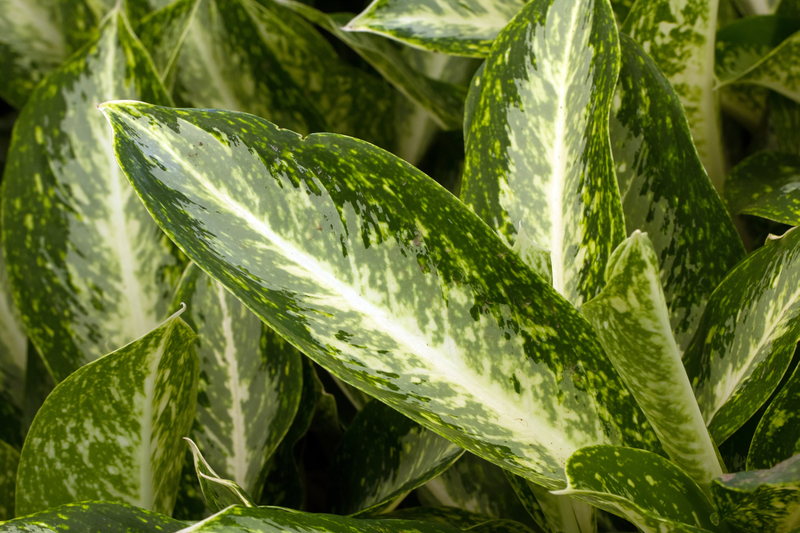Preparing Your Garden for Seasonal Shifts
Posted on 25/06/2025
As the seasons change, so too must your gardening strategies. Each shift brings unique challenges and opportunities, whether it's the icy chill of winter, the burgeoning growth in spring, the intense heat of summer, or the gradual winding down in autumn. To keep your garden vibrant and healthy all year round, it's essential to adapt your gardening practices to the changing conditions. In this article, we'll delve into various techniques and tips for preparing your garden for seasonal shifts.
Understanding Seasonal Changes
Understanding the specific needs and potential challenges of each season is the first step in preparing your garden. Different plants thrive in different conditions, and weather patterns can significantly affect their growth and health.
Winter
Winter is a time when most plants go dormant, but that doesn't mean you should neglect your garden. Focus on protecting your plants from the cold, ensuring they have enough moisture, and preparing your soil for spring planting.
Protecting Plants
- Mulching: Apply a thick layer of mulch around plants to insulate roots and retain moisture.
- Covering: Use burlap or frost cloths to cover delicate plants and protect them from frostbite.
- Watering: Water your plants thoroughly before the first freeze to ensure they are well-hydrated. However, avoid overwatering as this can lead to root rot.
Preparing Soil
Winter is an excellent time to prepare your soil for the spring. Add compost and organic matter to enrich the soil, and consider doing a soil test to check for pH levels and nutrient deficiencies.

Spring
Spring is a season of renewal and growth. Your garden will need ample nutrients and care to take full advantage of the warming weather.
Cleaning Up
- Removing Debris: Clear out fallen leaves, dead plants, and other debris that accumulated over winter. This not only looks cleaner but also prevents the spread of pests and diseases.
- Pruning: Cut back dead or damaged branches to encourage new growth. Spring is also a good time to shape your shrubs and trees.
Planting
- Selecting Plants: Choose plants that are suited to your local climate and soil conditions. Native species are often a good choice as they require less maintenance.
- Transplanting: Spring is an excellent time to transplant seedlings from indoors to your outside garden. Ensure you harden them off first by gradually exposing them to outdoor conditions.
Feeding and Watering
- Fertilizing: Apply a balanced, slow-release fertilizer to support the new growth. Be careful not to over-fertilize as this can cause nutrient imbalances.
- Watering: Spring showers are usually sufficient, but make sure your garden gets at least one inch of water per week, either from rain or supplemental watering.
Summer
Summer can be the most challenging season for gardeners, with its extreme temperatures and potential for drought. Proper watering and sun management are crucial during this time.
Water Management
- Irrigation Systems: Consider installing drip irrigation or soaker hoses to deliver water directly to the roots, reducing evaporation.
- Mulching: Mulch not only retains moisture but also helps control weeds and regulate soil temperature.
Sun Protection
- Shade Cloths: Use shade cloths to protect sensitive plants from the intense sun. This is especially important for plants that prefer cooler temperatures.
- Positioning: Plant taller plants or use garden structures to create natural shade for smaller, more delicate plants.
Autumn
Autumn is a transitional season, a time to harvest the last crops and prepare your garden for the coming winter.
Harvesting
- Final Harvest: Collect any remaining vegetables and fruits. Be sure to do this before the first frost to avoid losing your produce.
- Seed Saving: Save seeds from your healthiest plants for next year's planting. Store them in a cool, dry place.
Soil and Bed Preparation
- Soil Amendments: Add compost and other organic matter to replenish nutrients. Consider planting cover crops to improve soil health and prevent erosion.
- Cleaning Beds: Remove spent plants and debris. This helps prevent pests and diseases from overwintering in your garden.
Planting for Winter
- Winter Crops: Plant winter-hardy vegetables like kale, brussels sprouts, and garlic. These crops can survive the colder temperatures and provide fresh produce through winter.
- Spring Bulbs: Autumn is the perfect time to plant spring-blooming bulbs like tulips and daffodils. They require a period of cold dormancy to bloom in the spring.

Maintaining Garden Health Year-Round
Keeping your garden healthy through seasonal shifts requires ongoing effort and adaptation. Here are some general tips for year-round garden care:
Pest Control
- Integrated Pest Management (IPM): Monitor your garden regularly for pests. Use organic control methods like beneficial insects, and only resort to chemical treatments when absolutely necessary.
- Crop Rotation: Rotate crops each year to prevent pest and disease buildup in the soil.
Soil Health
- Organic Matter: Continuously add organic matter like compost to maintain soil health and fertility.
- pH Monitoring: Regularly check soil pH levels and adjust as needed to ensure optimal growing conditions.
Tool Maintenance
- Cleaning: Keep your gardening tools clean to prevent the spread of diseases. Disinfect them after each use.
- Sharpening: Regularly sharpen your tools to make gardening tasks easier and more efficient.
Conclusion
Preparing your garden for seasonal shifts is an ongoing process that requires attention to detail and a proactive approach. By understanding the unique needs of each season and taking appropriate actions, you can ensure that your garden remains productive, healthy, and beautiful all year round. Whether it's protecting your plants in winter, boosting growth in spring, managing heat and water in summer, or prepping for winter in autumn, each season has its challenges and rewards. Embrace the cycle, and your garden will thrive, providing you with joy and bountiful harvests throughout the year.
Latest Posts
Must-Try Planting Concepts for a Beautiful Autumn Garden
DIY Guide to Perfectly Sharpening Garden Shears at Home
Essential Techniques for Maintaining Clean and Lush Artificial Grass
Transform Your Space With Meaningful Zen Garden Plant Choices




